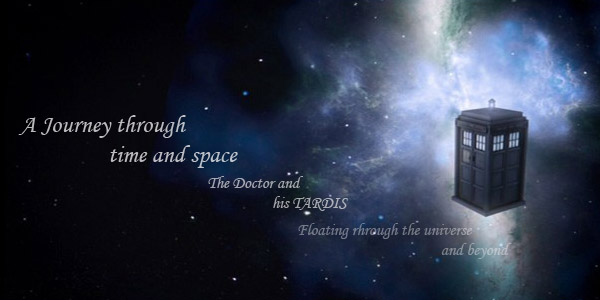Post by ultimatethey on Mar 6, 2008 20:14:05 GMT -5
NEW YORK — An explosive device caused minor damage to an empty military recruiting station in Times Square early Thursday, shaking guests in hotel rooms high above.
Police blocked off the area to investigate the explosion, which occurred at about 3:45 a.m., shattering the station's glass entryway. No one was injured.
"If it is something that's directed toward American troops than it's something that's taken very seriously and is pretty unfortunate," said Army Capt. Charlie Jaquillard, who is the commander of Army recruiting in Manhattan.
He said no one was inside the station, where the Marines, Air Force and Navy also recruit.
Witnesses staying at a Marriott hotel four blocks away said they could feel the building shake with the blast.
"I was up on the 44th floor and I could feel it. It was a big bang," said Darla Peck, 25, of Portland, Oregon.
"It shook the building. I thought it could have been thunder, but I looked down and there was a massive plume of smoke so I knew it was an explosion," said Terry Leighton, 48, of London, who was staying on the 21st floor of the Marriot.
Members of the police department's bomb squad and fire officials gathered outside the station in the early morning darkness, and police cars and yellow tape blocked drivers — most of them behind the wheels of taxicabs — from entering one of the world's busiest crossroads. Police began allowing some traffic through around the start of rush hour.
Though subway cars passed through the Times Square station without stopping in the early hours of the investigation, normal service was soon restored, with some delays.
The recruiting station, located on a traffic island surrounded by Broadway theaters and chain restaurants, has occasionally been the site of anti-war demonstrations, ranging from silent vigils to loud rallies.
In October 2005 a group of activists who call themselves the Granny Peace Brigade rallied there against the Iraq war. Eighteen activists, most of them grandmothers with several in their 80s and 90s, were later acquitted of disorderly conduct.
The recruiting station was renovated in 1999 to better fit into the flashy ambiance of Times Square, using neon tubing to give the glass and steel office a patriotic American flag motif. For a half century, the station was the armed forces' busiest recruiting center. It has set national records for enlistment, averaging about 10,000 volunteers a year.
Police said it was too early to say if the blast may have been related to two other minor explosions in the city.
In October, two small explosive devices were tossed over a fence at the Mexican consulate, shattering three windows but causing no injuries. No threats had been made against the consulate, and no one took responsibility for the explosion, police said.
At the time, police said they were investigating whether it was connected to a similar incident at the British consulate on May 5, 2005.
In that incident, the explosions took place in the early morning hours, when Britons were going to the polls in an election that returned Prime Minister Tony Blair to power.
In both cases, the instruments were fake grenades sometimes sold as novelty items. They were packed with black power and detonated with fuses, but incapable of causing serious harm, police said.
Police blocked off the area to investigate the explosion, which occurred at about 3:45 a.m., shattering the station's glass entryway. No one was injured.
"If it is something that's directed toward American troops than it's something that's taken very seriously and is pretty unfortunate," said Army Capt. Charlie Jaquillard, who is the commander of Army recruiting in Manhattan.
He said no one was inside the station, where the Marines, Air Force and Navy also recruit.
Witnesses staying at a Marriott hotel four blocks away said they could feel the building shake with the blast.
"I was up on the 44th floor and I could feel it. It was a big bang," said Darla Peck, 25, of Portland, Oregon.
"It shook the building. I thought it could have been thunder, but I looked down and there was a massive plume of smoke so I knew it was an explosion," said Terry Leighton, 48, of London, who was staying on the 21st floor of the Marriot.
Members of the police department's bomb squad and fire officials gathered outside the station in the early morning darkness, and police cars and yellow tape blocked drivers — most of them behind the wheels of taxicabs — from entering one of the world's busiest crossroads. Police began allowing some traffic through around the start of rush hour.
Though subway cars passed through the Times Square station without stopping in the early hours of the investigation, normal service was soon restored, with some delays.
The recruiting station, located on a traffic island surrounded by Broadway theaters and chain restaurants, has occasionally been the site of anti-war demonstrations, ranging from silent vigils to loud rallies.
In October 2005 a group of activists who call themselves the Granny Peace Brigade rallied there against the Iraq war. Eighteen activists, most of them grandmothers with several in their 80s and 90s, were later acquitted of disorderly conduct.
The recruiting station was renovated in 1999 to better fit into the flashy ambiance of Times Square, using neon tubing to give the glass and steel office a patriotic American flag motif. For a half century, the station was the armed forces' busiest recruiting center. It has set national records for enlistment, averaging about 10,000 volunteers a year.
Police said it was too early to say if the blast may have been related to two other minor explosions in the city.
In October, two small explosive devices were tossed over a fence at the Mexican consulate, shattering three windows but causing no injuries. No threats had been made against the consulate, and no one took responsibility for the explosion, police said.
At the time, police said they were investigating whether it was connected to a similar incident at the British consulate on May 5, 2005.
In that incident, the explosions took place in the early morning hours, when Britons were going to the polls in an election that returned Prime Minister Tony Blair to power.
In both cases, the instruments were fake grenades sometimes sold as novelty items. They were packed with black power and detonated with fuses, but incapable of causing serious harm, police said.














 YEAH FIGHT THE POWER!!
YEAH FIGHT THE POWER!!




